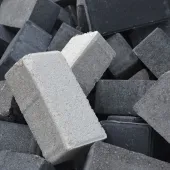Consortium to explore seawater for sustainable concrete
Saudi Arabia's Oil Sustainability Program (OSP) has launched the NovusCrete Consortium to drive innovation in sustainable concrete.
The initiative was launched on 29 January with a signing ceremony in Riyadh attended by energy minister Prince Abdulaziz bin Salman bin Abdulaziz, public investment fund (PIF) governor Yasir Al-Rumayyan, Saudi standards organisation governor Dr. Saad Al-Qasabi, and royal commission president Eng. Khalid Al-Salem.
The consortium includes PIF, the Saudi Investment Recycling Company (SIRC), NEOM's design and construction sector, SIKA, and ClimateCrete. Their goal is to develop technologies that reduce the construction sector's carbon footprint and improve material environmental efficiency. A key focus is the use of seawater in concrete production, reinforced with glass fibre reinforced polymer (GFRP) rebars.
Challenges of using seawater in concrete
While seawater offers a potential alternative to fresh water, its use in concrete is not yet widespread due to concerns over corrosion and durability. Chloride ions in seawater can accelerate the corrosion of traditional steel reinforcement, reducing the lifespan of structures. There are also concerns that seawater may impact cement hydration and affect the final strength of concrete. However, the adoption of non-corrosive materials such as GFRP rebars, along with specialised cement blends, is being explored to mitigate these challenges.
Current applications
Despite these concerns, seawater concrete has seen limited use in specific applications, particularly in marine and coastal structures. Some regions with scarce freshwater supplies have adopted it for non-reinforced or precast elements where steel corrosion is not an issue. Research and trials continue to assess its viability for broader use in infrastructure projects.
Countries such as Japan, Indonesia, and the United States have conducted research and trials on seawater concrete. Japan has explored its use with unwashed sea sand, focusing on hydration effects and durability. Indonesia has tested anti-corrosive treatments to improve longevity in coastal regions. In the United States, the SEACON project has investigated seawater and salt-contaminated aggregates, using fibre-reinforced polymers (FRP) as an alternative to steel reinforcement.
Future prospects
The NovusCrete Consortium aims to establish standards and codes for seawater concrete applications, promoting sustainability in building and construction. This initiative aligns with Saudi Vision 2030's objectives of balancing economic growth with environmental stewardship. By fostering innovation and supporting the local economy, the consortium seeks to create new opportunities in the building, construction, and manufacturing sectors while addressing global sustainability challenges.
If successful, the adoption of seawater concrete could reduce reliance on freshwater resources, support circular economy initiatives, and pave the way for more resilient and environmentally friendly construction materials.







